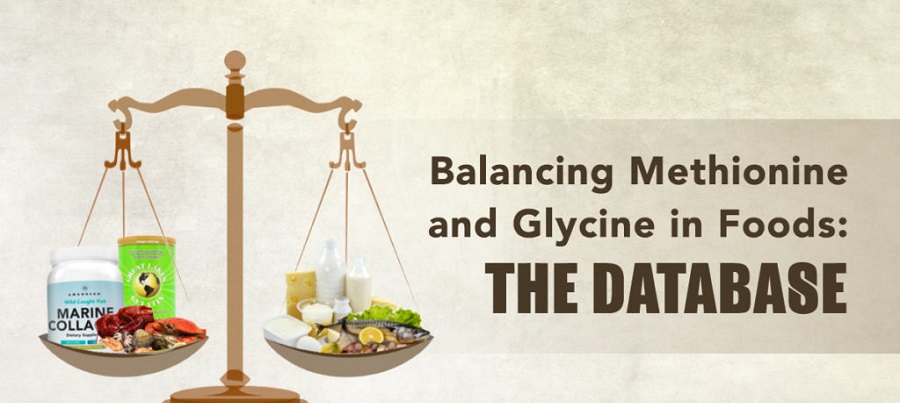Tyrosine is an amino acid that is found in high-protein foods such as meat, fish, eggs, dairy products, soy, and nuts. It is also produced naturally in the body from another amino acid called phenylalanine. Tyrosine is important for the production of a number of important molecules in the body, including neurotransmitters, hormones, and melanin (the pigment that gives color to the skin, hair, and eyes).
In terms of its effects on the brain, tyrosine is known to play a role in the production of neurotransmitters such as dopamine, norepinephrine, and epinephrine, which are involved in mood regulation, attention, and motivation. For this reason, some researchers believe that tyrosine supplements may be useful in treating conditions such as depression and attention deficit hyperactivity disorder (ADHD).
Tyrosine supplements are also believed to have cognitive-enhancing effects and to help with memory, focus and alertness, especially in stressful conditions or during sleep deprivation.
Additionally, tyrosine is also involved in the production of thyroid hormones and melanin, which gives color to the skin, hair, and eyes.
It is important to note that more research is needed to confirm the potential benefits of tyrosine supplements and to determine the appropriate dosage. It is also important to note that high doses of tyrosine may have adverse effects, and it should be avoided by people with hypertension, or who are taking MAO inhibitors, or other antidepressants.
How does tyrosine function in the body?
Tyrosine functions in the body in a number of ways, most importantly it is a precursor for the synthesis of the neurotransmitters dopamine, norepinephrine, and epinephrine, and the thyroid hormones thyroxine and triiodothyronine. These neurotransmitters and hormones play important roles in a variety of bodily functions including mood regulation, attention, motivation, metabolism, and heart rate.
Tyrosine is also used in the synthesis of melanin, the pigment that gives color to the skin, hair, and eyes.
In addition, Tyrosine is also involved in the synthesis of other important molecules such as neuropeptides, and other enzymes, which are involved in various physiological processes such as cell growth, blood pressure regulation, and immune response.
It is important to note that tyrosine is an non-essential amino acid, which means that the body can produce it from phenylalanine, however, under certain circumstances such as stress, illness, or a low-protein diet, the body may not be able to produce enough tyrosine, leading to a deficiency. In these cases, tyrosine supplements may be beneficial.
What are the benefits of taking tyrosine supplements?
Tyrosine supplements are believed to have a number of potential benefits, although more research is needed to confirm these effects and to determine appropriate dosages. Some of the potential benefits of tyrosine supplements include:
-
Improving cognitive function: Tyrosine is involved in the production of neurotransmitters such as dopamine, norepinephrine, and epinephrine, which play important roles in mood regulation, attention, and motivation. For this reason, tyrosine supplements may be useful in improving cognitive function and memory, especially in stressful conditions or during sleep deprivation.
-
Treating depression and ADHD: Because tyrosine is involved in the production of neurotransmitters, it may be useful in treating conditions such as depression and attention deficit hyperactivity disorder (ADHD)
-
Improving athletic performance: Tyrosine supplements may help to improve athletic performance by reducing the effects of stress on the body and by increasing the production of the catecholamines, which are involved in the "fight or flight" response.
-
Enhancing skin and hair health: Tyrosine is involved in the production of melanin, the pigment that gives color to the skin, hair, and eyes. Therefore, tyrosine supplements may be beneficial for people with pigmentation disorders or those who want to improve the health of their skin and hair.
-
Helping with weight loss: Tyrosine supplements may help with weight loss by increasing the production of thyroid hormones and by reducing the effects of stress on the body.
It is important to note that tyrosine supplements may have side effects and can interact with certain medications, so it is best to consult with a healthcare provider before taking them. Also, large doses of tyrosine may have adverse effects, and it should be avoided by people with hypertension, or who are taking MAO inhibitors, or other antidepressants.
What foods contain high levels of tyrosine?
Tyrosine is an amino acid that can be found in high-protein foods. Some foods that contain high levels of tyrosine include:
-
Meat: Beef, pork, chicken, and turkey are all good sources of tyrosine.
-
Fish: Fish such as tuna, salmon, and halibut are also high in tyrosine.
-
Eggs: Eggs are a rich source of tyrosine, as well as other essential amino acids.
-
Dairy: Milk, cheese, and yogurt are also good sources of tyrosine.
-
Soy: Soy products such as tofu, tempeh, and soy milk are also high in tyrosine.
-
Nuts and seeds: Almonds, peanuts, pumpkin seeds, and sunflower seeds are also good sources of tyrosine.
-
Whole grains: Whole wheat, oats, barley, and quinoa are also good sources of tyrosine.
-
Legumes: beans, peas, lentils, are also good sources of tyrosine.
It is important to note that while these foods contain high levels of tyrosine, you may need to consume a variety of them in order to meet your body's daily needs. Additionally, you should also consider the overall nutritional value of the food and other components in the food that might interfere with the absorption of tyrosine.
How does tyrosine affect the production of neurotransmitters?
Tyrosine plays an important role in the production of neurotransmitters, which are chemicals that transmit signals between nerve cells in the brain and throughout the body. Tyrosine is a precursor for the synthesis of several neurotransmitters, including:
-
Dopamine: Tyrosine is converted into L-dopa, which is then converted into dopamine. Dopamine plays a role in mood regulation, motivation, and attention.
-
Norepinephrine: Tyrosine is converted into norepinephrine, a neurotransmitter that plays a role in the "fight or flight" response, as well as in mood regulation and attention.
-
Epinephrine: Tyrosine is also converted into epinephrine, a hormone and neurotransmitter that is involved in the "fight or flight" response, as well as in heart rate and blood pressure regulation.
By increasing the availability of tyrosine, it could help in increasing the production of these neurotransmitters. However, it is important to note that more research is needed to fully understand how tyrosine affects the production of neurotransmitters, and to determine the appropriate dosages of tyrosine supplements.
It's also worth noting that the effects of tyrosine on neurotransmitters production may not be immediate, and the body's ability to convert tyrosine into neurotransmitters also depends on the availability of other cofactors such as vitamins and minerals, and the integrity of the enzymes that catalyze these conversions.
Can tyrosine be used to treat depression?
Tyrosine is a precursor for the synthesis of neurotransmitters such as dopamine, norepinephrine, and epinephrine, which play important roles in mood regulation. Because of this, some researchers believe that tyrosine supplements may be useful in treating depression.
Studies have shown that low levels of dopamine and norepinephrine are associated with depression, and that increasing the availability of tyrosine could increase the production of these neurotransmitters, which in turn could help to improve mood.
However, it's important to note that the research on the effectiveness of tyrosine as a treatment for depression is still limited and more studies are needed to confirm these findings and to determine the appropriate dosages.
It is also worth noting that depression is a complex illness that can have multiple causes and can be treated with a combination of medications, therapy, and lifestyle changes. Therefore, it's not recommended to use tyrosine as a sole treatment for depression and always best to consult a healthcare professional before taking any supplements.
How does tyrosine deficiency affect the body?
A deficiency in tyrosine can affect the body in a number of ways, as it can lead to a decrease in the production of important molecules such as neurotransmitters, hormones, and melanin. Some of the potential effects of tyrosine deficiency include:
-
Cognitive and mood disorders: Because tyrosine is involved in the production of neurotransmitters such as dopamine, norepinephrine, and epinephrine, a deficiency in tyrosine can lead to a decrease in the production of these neurotransmitters, which can result in cognitive and mood disorders such as depression, anxiety, and attention deficit hyperactivity disorder (ADHD).
-
Hypothyroidism: Tyrosine is also involved in the production of thyroid hormones, which regulate metabolism. A deficiency in tyrosine can lead to a decrease in the production of these hormones, which can result in hypothyroidism, a condition characterized by fatigue, weight gain, and sensitivity to cold.
-
Pigmentation disorders: Tyrosine is also involved in the production of melanin, the pigment that gives color to the skin, hair, and eyes. A deficiency in tyrosine can lead to a decrease in the production of melanin, which can result in pigmentation disorders such as albinism and vitiligo.
-
Decreased protein synthesis: Tyrosine is an essential amino acid for the synthesis of proteins, and a deficiency in tyrosine can affect the body's ability to produce new proteins, which could have consequences on the skin, hair, nails, and muscle growth and repair.
It's important to note that tyrosine deficiency is relatively rare and usually occurs in conjunction with other deficiencies such as phenylalanine, which is the precursor of tyrosine. Tyrosine deficiency is usually caused by a low-protein diet, or by certain medical conditions that affect the absorption of amino acids.


